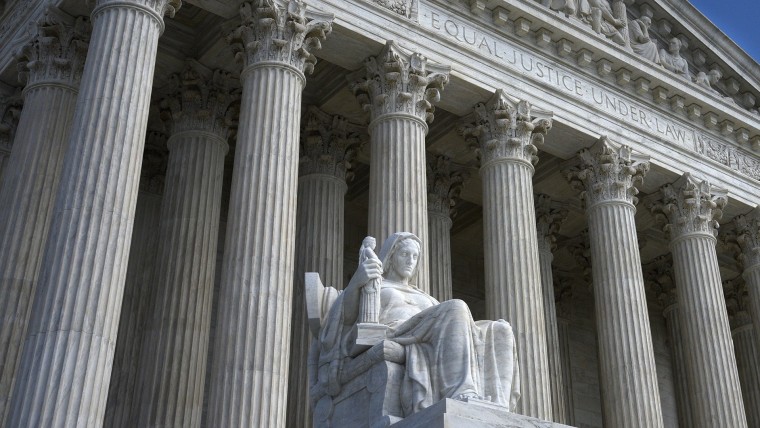As several members of the U.S. Supreme Court confront ethics questions, congressional Democrats have proposed new reforms intended to bolster the institution’s integrity and improve the high court’s public reputation. The effort has been challenging: Republicans have rejected the proposed reforms for reasons they’ve struggled to explain.
The divisions are not limited to Capitol Hill. Across the street, for example, Justice Samuel Alito is of the opinion that Congress, despite the plain language of the U.S. Constitution, lacks the legal authority to regulate the Supreme Court. A few days after Alito’s odd comments to Wall Street Journal editors, Justice Elana Kagan spoke at a judicial conference and made the opposite argument.
Justice Clarence Thomas, meanwhile, is doing his part to keep fueling the conversation.
The far-right jurist was already controversial, but over the course of several months, Thomas has faced a series of ethics questions that he and his allies have struggled to answer. ProPublica, for example, has taken the lead on exposing Thomas’ unusual and previously undisclosed ties to a Republican megadonor.
Last month, The New York Times took the story further, shining a light on previously unreported benefits the justice has received from a “cohort of wealthy and powerful friends,” thanks to his connections established through the Horatio Alger Association of Distinguished Americans.
And now the Times has added new and related questions, this time about a recreational vehicle that Thomas has bragged about many times, though it appears he’s left out some relevant details.
His Prevost Marathon cost $267,230, according to title history records obtained by The New York Times. And Justice Thomas, who in the ensuing years would tell friends how he had scrimped and saved to afford the motor coach, did not buy it on his own. In fact, the purchase was underwritten, at least in part, by Anthony Welters, a close friend who made his fortune in the health care industry.
According to the Times’ reporting, which has not been independently verified by MSNBC or NBC News, Thomas’ wealthy pal provided the sitting justice with the financing that made it possible for Thomas to buy the recreational vehicle. Welters told the newspaper that “the loan was satisfied” roughly nine years later.
By any fair measure, there are more questions than answers. How much did Welters loan Thomas? They won’t say. How much did Thomas repay? They won’t say. What were the terms of the loan? They won’t say. Was there a formal loan agreement? They won’t say.
The article added: “The two men’s silence serves to obscure whether Justice Thomas had an obligation to report the arrangement under a federal ethics law that requires justices to disclose certain gifts, liabilities and other financial dealings that could pose conflicts of interest.”
While it’s true that existing reporting requirements don’t generally apply to vehicle loans, the Times went on to note that private loans such as this one “can be deemed gifts or income to the borrower under the federal tax code if they don’t hew to certain criteria: Essentially, experts said, the loan must have well-documented, commercially reasonable terms along the lines of what a bank would offer, and the borrower must adhere to those terms and pay back the principal and interest in full.”
Meanwhile, Senate action on the Supreme Court Ethics, Recusal, and Transparency Act, which overcame GOP opposition to clear the Senate Judiciary Committee last month, is expected in September. That’ll give Republican skeptics plenty of time to read the Times’ reporting and related revelations about Thomas’ provocative recent past.
This post updates our related earlier coverage.

